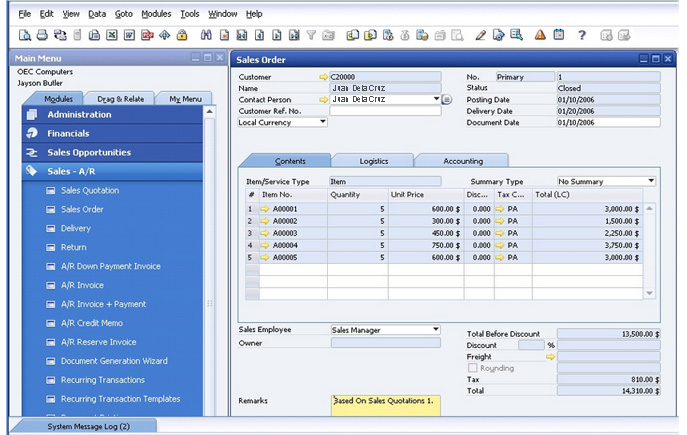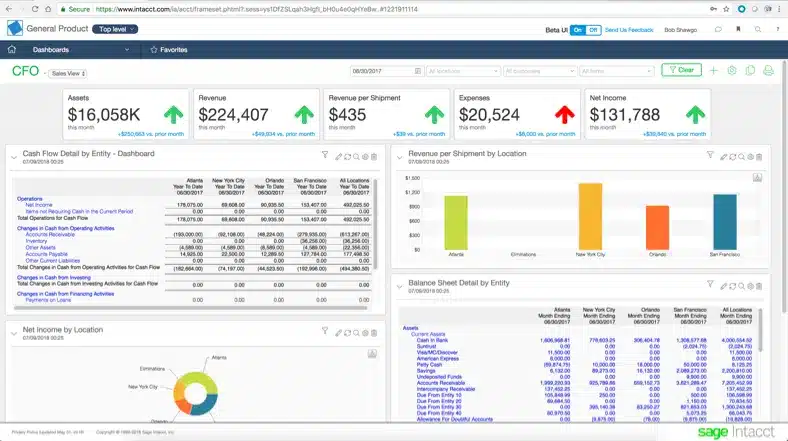SAP Accounting Software is a powerful tool for managing financial processes. It helps businesses streamline accounting tasks and improve accuracy.
In today’s fast-paced business world, efficient accounting software is crucial. SAP, a leader in enterprise software, offers a comprehensive accounting solution. This software handles tasks such as financial reporting, transaction management, and compliance. Businesses of all sizes benefit from its robust features.
SAP Accounting Software integrates seamlessly with other systems, providing a unified platform. It reduces manual errors, saves time, and ensures data accuracy. Understanding its capabilities can transform your financial management. Let’s dive deeper into what makes SAP Accounting Software essential for modern businesses.

Credit: www.youtube.com
Introduction To Sap Accounting Software
SAP Accounting Software helps businesses manage their financial data. It is a part of SAP’s larger ERP system. This software keeps track of all financial transactions. It makes it easy to generate reports. SAP helps in making informed business decisions. Many companies use SAP for its reliability and efficiency.
SAP was founded in 1972 in Germany. The company started with five engineers. They aimed to create software that could process data in real time. Over the years, SAP has grown into a global leader in software solutions. Many big companies use SAP today. It has become a trusted name in the industry.
SAP Accounting Software is vital for modern businesses. It helps in managing complex financial data. This software improves accuracy and efficiency. Companies can save time and reduce errors. SAP also helps in complying with legal requirements. It provides tools for financial planning and analysis. Businesses can make better decisions with SAP.

Credit: www.youtube.com
Core Features Of Sap Accounting
SAP helps manage your money. It keeps track of all financial transactions. It also helps you plan your budget. You can see where your money goes. This makes it easy to control spending. SAP also provides reports. These reports show your financial health. You can make smart decisions with these reports.
SAP keeps track of bills you need to pay. It also tracks money others owe you. This is called accounts payable and receivable. SAP makes sure you pay your bills on time. It also helps you collect money from customers. This keeps your cash flow healthy. You can avoid late fees and missed payments.
SAP helps you manage your assets. Assets are things like buildings, machines, and cars. SAP keeps a record of all your assets. It tracks their value and condition. This helps you know when to repair or replace them. You can also see how much each asset costs to maintain. This helps you save money.
Benefits Of Using Sap Accounting
SAP accounting software helps reduce errors. It automates many tasks. This means fewer mistakes. Accurate data is important. It saves time and money. Your team can focus on other tasks.
SAP software speeds up processes. It reduces manual work. This boosts productivity. Employees can do more in less time. Efficient systems lead to better results. Work gets done faster and easier.
SAP accounting software grows with your business. It adapts to your needs. Small or big, it fits well. This flexibility is valuable. As your business expands, the software supports you. No need to switch systems.
How Sap Accounting Streamlines Finances
SAP Accounting automates many financial tasks. This saves time and reduces errors. Tasks like invoicing, payroll, and tax calculation become easier. This software handles repetitive tasks well. It frees up your staff for other important work. Efficiency increases, and costs go down. This means more focus on business growth.
With SAP Accounting, you get real-time data. This means you see financial updates instantly. You can make better decisions based on current information. No more waiting for monthly reports. Up-to-date data helps in planning and forecasting. This keeps your business on track.
SAP Accounting works well with other systems. It connects with sales, inventory, and HR systems. This integration means less manual data entry. Data flows smoothly across departments. This improves accuracy and saves time. Your business runs more smoothly.
Implementation Process
Preparation is key to successful SAP implementation. Start by understanding your business needs. Next, outline clear goals. A solid plan ensures smooth progress. Allocate resources wisely. Set a realistic timeline. This helps keep the project on track.
Gather your team early. Ensure they know their roles. Provide necessary training. Keep communication open. Regular meetings help. Monitor progress closely. Make adjustments as needed.
Proper training is essential. Begin with basics. Gradually introduce complex features. Ensure everyone understands their tasks. Offer hands-on practice. This builds confidence.
Provide ongoing support. Set up a help desk. Address issues quickly. Use feedback to improve. Keep updating skills. This helps adapt to changes. Stay connected with experts. They provide valuable insights.

Credit: www.svtuition.org
Common Challenges And Solutions
Moving data can be hard. Old systems may not match new ones. This can cause data loss. Plan well to keep data safe. Clean data before moving it. This avoids errors. Test the process. Fix any issues found. Use tools to help. Follow a step-by-step guide.
New software can be tricky. Users may resist change. Training is key. Simple guides help a lot. Support users with questions. Offer help often. Make the software easy to use. Listen to user feedback. This makes the transition smooth.
Case Studies Of Successful Implementations
A small bakery used SAP Accounting Software. They had many problems. Managing orders was hard. Tracking expenses took time. After using SAP, they saw changes. Orders became simple to track. Expenses were easy to manage. They saved time. They made more profit. The owner was happy.
A large car company needed help. Financial data was messy. Reports took too long. They chose SAP. The software helped a lot. Data was organized. Reports were fast and clear. Decisions improved. The company grew. They hired more people. Their success was big.
Future Of Sap Accounting Software
SAP accounting software is evolving with new technologies. These include AI and machine learning. These tools help automate tasks. They also provide better data analysis. This makes decision-making easier. Cloud computing is another big step. It allows access from anywhere. Businesses can work remotely. This increases flexibility. Security is also getting better. New technologies help protect data. This is crucial for businesses. They need to keep their information safe.
The market for SAP accounting software is growing. More companies are using it. Small businesses are also adopting it. They find it useful. The demand for real-time data is increasing. Businesses want instant information. This helps them stay competitive. Customization is another trend. Companies want software that fits their needs. SAP is meeting this demand. They offer tailored solutions. This makes the software more effective. It suits different types of businesses.
Conclusion
Sap Accounting Software simplifies complex financial tasks. It streamlines processes, improving efficiency. Businesses benefit from accurate reporting and data analysis. Easy integration with other systems enhances productivity. Its user-friendly interface aids quick adoption. Sap offers scalability, fitting small to large enterprises.
Real-time data access supports better decision-making. Cost savings and improved control are key advantages. Opt for Sap to stay competitive and organized.



